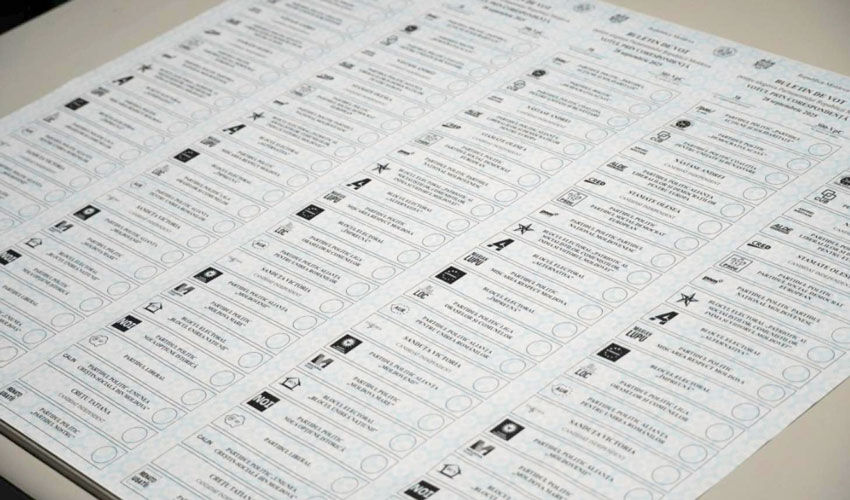
It is planned to print 2,772,255 ballot papers for polling stations on the territory of the country, of which: 649,573 – in Russian, 217,039 – in Ukrainian, 3,400 – in Gagauz, 1,827 – in Bulgarian, 416 – in Romani. These figures were requested from the district polling stations,” said Central Election Commission (CEC) Chairwoman Angelika Karaman.
“The circulation of ballot papers is determined on the basis of proposals received from the polling stations from the field, according to the number of voters included in the electoral lists. Special institutions located on the territory of polling stations – penitentiary institutions, hospitals, nursing homes and military units, where voters who are not included in the main lists vote, are also taken into account,” Karaman said.
It is planned to print 23,500 ballot papers for voters from the left bank of the Nistru River, of which 14,500 are in Romanian. Caraman specified that the number was calculated on the basis of the average turnout in the last three elections.
Meanwhile, as another CEC member, Vadim Filipov, pointed out, the Electoral Code does not specify that this particular criterion (average turnout) should be applied. Thus, for Transnistria the average indicator is used, while for polling stations abroad the maximum indicator is used. Last year, more than 26 thousand Moldovan citizens with residence registration on the left bank of the Nistru River voted, while the number of ballots that the CEC intends to offer them is only 23500. At the same time, 320 thousand voted abroad, and more than one million ballots are allocated – three times more.
Karaman added that the proposal for the number of ballots abroad comes from the Ministry of Foreign Affairs.
Filipov, who represents the opposition in the CEC, called this method beyond the Electoral Code and discriminatory.
A total of 1,098,000 ballots were requested by the Foreign Ministry for polling stations abroad, including: 105,500 in Russian, 1,500 in Ukrainian, and 500 in Gagauz.
When asked about the cost of one ballot paper, Angelica Karaman said that the price will be known after the approval of the exact circulation, when the printing house will provide the cost depending on the number and language of ballots.
Three CEC members voted against today’s decision.
Printing started with ballots for mail-in ballots because this process, according to the CEC chairperson, requires more time.
A joint working group with the participation of representatives of the Ministry of Foreign Affairs worked on the approval of the total number of ballots.
Also today, the ministry announced that the election materials required for voting by mail have been prepared and sent to four specially created polling stations. Envelopes with ballot papers will be delivered to voters in 10 countries where this procedure is being conducted: the United States, Canada, Norway, Sweden, Finland, Iceland, Japan, the Republic of Korea, Australia and New Zealand. All voters who have pre-registered will receive a ballot envelope.
“We strongly recommend that you follow the enclosed instructions carefully and send your vote as soon as possible so that it arrives within the legal deadline of September 26, 2025, 6:00 p.m. (local time of the host country),” the Foreign Ministry said. A total of 2,606 citizens have registered to vote by mail.
Earlier, the CEC approved the procedure for including electoral competitors in the ballot paper for the parliamentary elections – 23 candidates are included in it.













